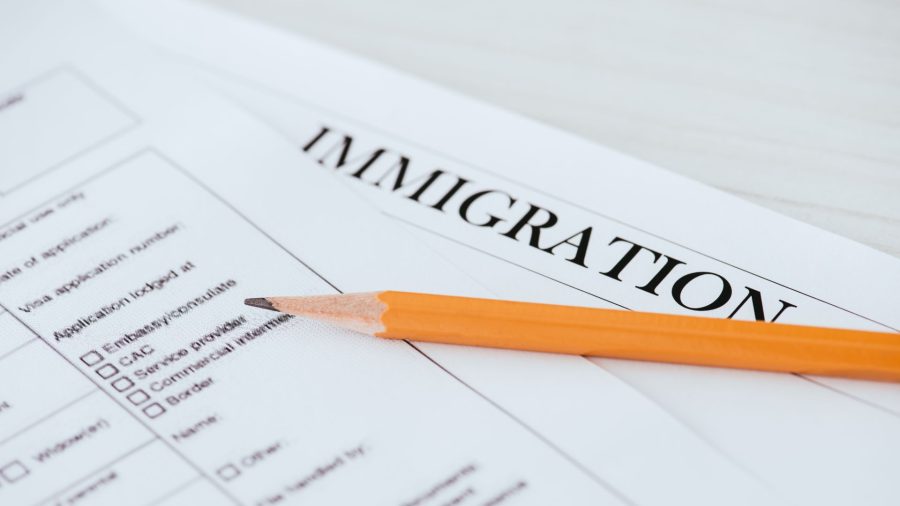At Rebecca Black Immigration, PA, we understand that a denied immigration petition can be a stressful and disheartening experience. However, a denial doesn’t always mean the end of the road. In many cases, you have the option to appeal the decision, and with the right guidance and legal support, you can effectively present your case. In this blog, we’ll walk you through the appeal process, the reasons why petitions are often denied, and tips to strengthen your appeal.
Understanding the Denial: Why Was Your Petition Denied?
The first step in appealing a denied immigration petition is understanding why it was denied. U.S. Citizenship and Immigration Services (USCIS) and other immigration agencies are required to provide a written explanation for the denial. Common reasons for denial include:
- Incomplete or Inaccurate Documentation: Missing forms, incorrect information, or failure to provide required evidence can lead to denial.
- Failure to Meet Eligibility Criteria: If USCIS determines you don’t meet the requirements for the visa or immigration benefit, your petition may be rejected.
- Criminal Records or Security Concerns: Past criminal activities or perceived security risks can influence the decision.
- Lack of Financial Support: For petitions that require proof of financial ability, insufficient evidence can result in denial.
- Inadmissibility Issues: Issues such as unauthorized presence, prior deportations, or health-related concerns can affect your petition.
Once you identify the reason for denial, you can determine whether an appeal or reapplication is the best course of action.
What Are Your Options After a Denial?
After receiving a denial, you generally have three options:
- File an Appeal: If you believe the decision was incorrect based on the evidence or law, you can file an appeal to a higher authority.
- File a Motion to Reopen or Reconsider: This option is appropriate if new evidence has come to light or you believe there was an error in the original decision.
- Reapply: If your denial was due to missing documents or an easily fixable issue, reapplying might be the most efficient option.
It’s essential to act quickly as deadlines for appeals and motions are strict, often within 30 days of the denial notice.
The Appeal Process: Step-by-Step Guide
1. Review the Denial Notice
The denial notice (often referred to as a Notice of Action or Form I-797) outlines the specific reasons for denial. Carefully analyze this document with your attorney to identify errors or areas for improvement.
2. Determine Eligibility for an Appeal
Not all decisions can be appealed. The notice will state whether the denial can be appealed and to which agency the appeal should be submitted. Common appellate bodies include:
- Administrative Appeals Office (AAO): Handles appeals related to employment-based petitions, H-1B visas, and some family-based applications.
- Board of Immigration Appeals (BIA): Oversees appeals involving deportation and removal orders.
3. Prepare Form I-290B
The standard form for filing an appeal or motion with USCIS is Form I-290B, Notice of Appeal or Motion. Along with this form, you’ll need:
- A detailed explanation of why the denial was incorrect.
- Supporting evidence, such as new documents or clarifications.
- The filing fee (as of 2024, the fee is $675, though fee waivers may be available in some cases).
4. Submit the Appeal
Submit Form I-290B and supporting documents to the address specified on the denial notice. Ensure it is filed within the deadline (typically 30 days from the date on the denial notice).
5. Respond to Requests for Evidence (RFEs)
During the appeal process, USCIS or the appellate body may issue an RFE asking for additional documentation. Respond promptly and comprehensively.
6. Await the Decision
Appeals can take several months or even years to resolve. Your attorney can help you stay informed and explore interim solutions, such as applying for temporary work authorization or travel documents, if eligible.
Tips for a Successful Appeal
- Work with an Experienced Immigration Attorney The immigration appeal process is complex, and even small mistakes can result in dismissal. An experienced attorney can help craft a strong argument and gather the necessary evidence.
- Provide Comprehensive Documentation Ensure all supporting documents are accurate, complete, and well-organized. This includes affidavits, financial records, or proof of eligibility.
- Address the Denial’s Specific Reasons Tailor your appeal to directly address the reasons for denial outlined in the decision. Avoid generalizations and focus on specific legal or factual errors.
- File on Time Missing deadlines is one of the most common reasons appeals are dismissed. Mark your calendar and gather materials promptly to ensure timely filing.
- Consider a Motion to Reopen or Reconsider In some cases, presenting new evidence or asking the agency to review its decision may be more effective than a formal appeal.
¿Cómo podemos ayudar?
At Rebecca Black Immigration, PA, we specialize in navigating the complexities of immigration law. Our experienced attorneys can:
- Analyze your denial notice to determine the best course of action.
- Help you file an appeal, motion to reopen, or reconsideration.
- Represent you before appellate bodies like the AAO or BIA.
- Provide strategic advice to strengthen your case and avoid future denials.
We’ve helped countless clients turn denial into approval, and we’re ready to help you achieve your immigration goals.
Frequently Asked Questions
1. How long does the appeal process take?
The timeline varies depending on the appellate body and the complexity of the case. Appeals to the AAO typically take 6-12 months, while BIA cases may take longer.
2. Can I stay in the U.S. while my appeal is pending?
In most cases, filing an appeal does not grant you legal status. Consult with an attorney to explore interim options like work permits or travel authorization.
3. What happens if my appeal is denied?
If your appeal is denied, you may still have options, such as pursuing a federal court review or reapplying under different circumstances.
Conclusion
A denied immigration petition is not the end of your journey. With a clear understanding of the denial, a well-prepared appeal, and expert legal support, you can overcome this hurdle and move closer to achieving your immigration goals. At Rebecca Black Immigration, PA, we’re here to help every step of the way.
Ready to appeal your denied immigration petition? Contact us today for a consultation.








